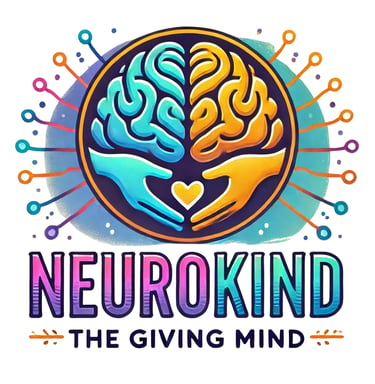The Secrets Underneath
Building Positive Habits Your Brain Will Thank You For
Stevie Whitby
4/18/20253 min read


We often hear that building good habits is about discipline or willpower - but what if I told you there’s more beneath the surface? Beneath the daily routines and to-do lists lies a landscape of the brain that, when understood and nurtured, can make building positive habits feel less like a chore and more like a natural part of life.
Clearing the Fog: How the Brain Really Works
At the heart of our decision-making lies the prefrontal cortex, the part of the brain responsible for rational thinking, planning, and self-regulation. But this part of our brain can only shine when the “forest” around it is clear. Think of stress, fatigue, or sensory overload as a dense fog - when it clouds the mind, even the best intentions can feel impossible to act on.
For individuals with PDA traits or high sensitivity to demands, this fog can appear more frequently, making structured habits feel daunting. Recognising this isn’t a weakness - it’s simply the brain sending signals that it needs support, not pressure.
Neuroplasticity: Rewiring the Brain with Hope
The science of neuroplasticity shows that our brains are remarkably adaptable. Every positive action - no matter how small - can strengthen neural pathways that make future positive behaviors easier. This means that habit-building isn’t about forcing yourself into rigid routines; it’s about creating gentle, repeated experiences that your brain can learn from and reward.
When we combine this with a reduction in stress and sensory overwhelm, we give our brains the perfect conditions to build these positive pathways. Each small success reinforces the next, creating momentum naturally, rather than through coercion.
The Stress Connection: Why Lowering Stress Matters
Stress doesn’t just affect the mind - it affects the entire body. Elevated stress hormones can make it harder to think clearly, impair memory, and even affect digestion, sleep, and immunity. Lowering stress, therefore, is not a luxury - it’s a foundational step in habit-building. Mindful practices, slow breathing, nature walks, or any activity that brings your body back into balance can literally clear the fog, giving your prefrontal cortex the space it needs to function at its best.
Mind-Body Harmony: Sensory Regulation Is Essential.
Our brains and bodies are deeply connected. Sensory regulation - whether through touch, movement, sound, or sight - can help calm the nervous system and increase focus. By tuning into the body’s signals, we support our minds, creating an environment where rational decisions and positive behaviors feel achievable. For example, a short walk in nature, listening to calming music, or engaging with textures that feel grounding can help both the body and mind feel more present and capable.
Creating Habits That Stick
When we understand how the brain works, building habits becomes less about force and more about support. We create conditions where the brain can succeed:
Clear the fog with stress reduction and sensory support.
Engage in repeated positive actions, however small, to strengthen neural pathways.
Honor your body’s signals, using them as guidance rather than ignoring them.
Building habits from this place of understanding and self-compassion allows growth without the pressure of rigid expectations. The brain is always learning, and when we work with it, rather than against it, we can cultivate habits that feel natural, sustainable, and even joyful.
I’ve also tried to write this book in a way as to consider those who struggle with PDA traits too, sharing my own journey as a reflection rather than a set of direct instructions. My hope is that it offers gentle prompts and ideas for exploring small changes - tiny positive habits that can be built gradually, almost without noticing, at your own pace. This isn’t about pressure or rules; it’s about creating a space where curiosity, self-understanding, and small, consistent actions can naturally grow into meaningful habits over time.
Positive Emotional Resilience
Finding strength in every path
Support
JOIN COMMUNITY
info@thewildwayin.com
© 2025. All rights reserved.






